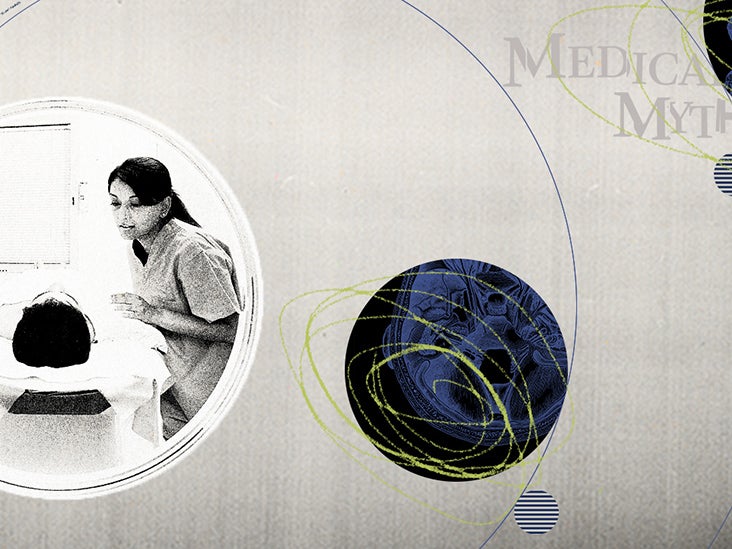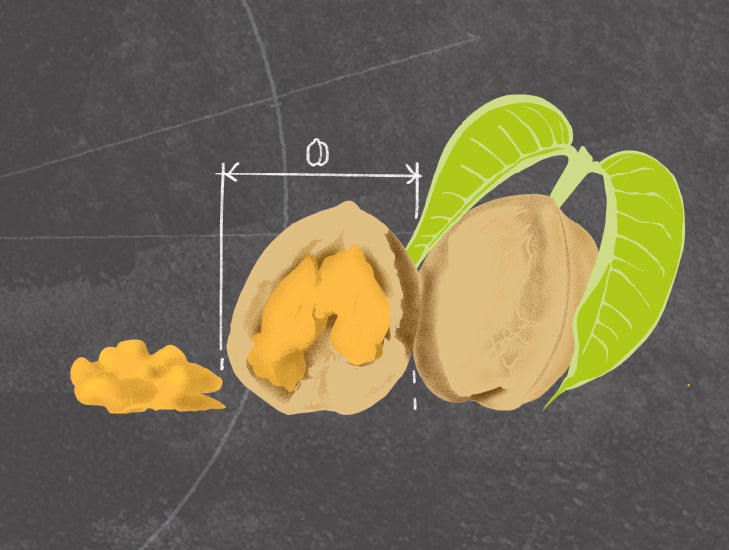By Corrie Pelc on October 30, 2023 — Fact checked by Kelsey Costa, MS, RDN
- The gut microbiome plays an important role in the body’s overall health.
- A healthy gut microbiome has a diverse range of microorganisms.
- A new study from Graz University of Technology says eating fruits and vegetables helps provide some of this bacterial diversity in the human gut.
Over the past few years, people have become very aware of their gut microbiome and the importance of keeping it healthy.
A healthy gut microbiome has a diverse range of bacteria, viruses, fungi, and other microorganisms that not only help the digestive system break down food but also support the immune system and the gut-brain axis.
Sometimes, people may be confused about what they need to eat to have a diverse and healthy gut microbiome.
A new study from Graz University of Technology in Austria suggests that it’s as simple as eating more fruits and vegetables.
The findings were published in the journal Gut Microbes.
For this study, researchers first created a catalog of microbiome data from fruits and vegetables. This allowed them to figure out which bacteria and other plant microorganisms come from each type of produce.
Next, scientists compared their data catalog with publicly available data from two studies on intestinal flora — the TEDDY project looking at the development of babies in a long-term study and the American Gut Project examining the intestinal microbiome of adults.
With so much data in their hands, the researchers were able to find evidence of fruit and vegetable microflora in the gut.
Dr. Gabriele Berg, head of the Institute of Environmental Biotechnology at Graz University of Technology in Austria and lead author of this study, told Medical News Today these findings may affect how fresh fruits and vegetables are grown and/or packaged in the future because intense agri- and horticulture is a strong driver of the environmental microbiome that influences human health, as well as planetary health.
“In my eyes, we have to rethink a lot of our current agricultural practices. For example, breeding for yield and resistance only, seed production and control, use of fertilizers and pesticides, food storage, and processing,” she said.
Dr. Berg is already working on a new study where people on three continents eat the same things for a certain period. This will allow researchers to examine how where foods are grown may affect the gut microbiome.
“Fresh fruit and vegetables will always have the best microbiome; agriculture or processing companies already have a major influence here. And the storage and processing of food must also be critically reconsidered,” Dr. Berg added.
RELATED VIDEOS
From their findings, the scientists found that eating more fruits and vegetables during infancy has a positive influence on the development of the immune system during the first three years of life.
According to Dr. Babak Firoozi, a board certified gastroenterologist at MemorialCare Orange Coast Medical Center in Fountain Valley, CA, who was not involved in this study, during infancy, the gut flora is heavily influenced by the mother, as well as by the early introduction of fruits and vegetables.
“The overall gut microbiota appears to settle and not change significantly after the baby turns 2,” he told MNT. “Therefore, it is crucial that parents introduce healthy eating at an early age, so their child can have a lifelong gut microbiota that is diverse and [for] promoting of overall good health.”
Monique Richard, a registered dietitian nutritionist, owner of Nutrition-In-Sight, and national media spokesperson for the Academy of Nutrition Dietetics, who was not involved in this study, agreed: “Exposure is key for the introduction and establishment of lifelong habits to include a variety of fruits and vegetables, especially for microbiome colonization between ages 1 to 3.”
“Modeling balance and consumption of a wide variety of diverse foods and food groups by parents/guardians is essential, as well as having those foods available and prepared on a regular basis for the child to consume at meal and snack time,” she added.
The human gut microbiome consists of trillions of microorganisms, such as bacteria and viruses.
No two microbiomes are the same. Researchers estimate the gut microbiomes of individual humans are 80-90% different when compared to each other.
What everyone’s microbiomes have in common is the need for them to be healthy. A healthy gut microbiome is both rich in the total amount of microorganisms it contains and diverse in the types of those microorganisms. This allows the microbiome to function better as it can fulfill more functions.
However, microbiota do not stay in the microbiome forever. And some things may make their numbers decrease, such as aging, environmental factors, or taking certain medications like antibiotics.
For this reason, people have to actively work to keep their gut microbiome varied and healthy. Some ways to do that include:
- eat a wide range of foods, including prebiotic and fermented foods
- exercise
- lower stress
- avoid artificial sweeteners
- take probiotics as necessary
Lack of diversity or a low amount of vital microorganisms in the gut can lead to a variety of health issues, including autoimmune diseases, digestive disorders, high cholesterol, and obesity.
Richard said one of the many reasons fruits and vegetables are so important for gut health is related to their fiber — both insoluble and soluble — content.
“[Fiber] adds bulk to our stool, which helps move waste through our intestines to be excreted,” she explained to MNT.
HOW FIBER HELPS THE GUT“Soluble fiber dissolves with water but also attracts water, allowing it the capacity to bind together, grabbing fat and cholesterol and is able to help ‘sweep’ and ‘clear’ out our intestinal tract. These fibers, along with the multitude of nutrients found in fruits and vegetables, literally feed the microbiome in our gut, activate, protect, and support our bodily functions physiologically and biologically.”
— Monique Richard
Eating fruits and vegetables that contribute to the diversity of your gut microbiome helps with the production of important vitamins and short-chain fatty acids, said Dr. Firoozi.
“Short-chain fatty acids are the main nutrients for your intestinal cells and are vital to cell function in general,” he added.
When it comes to figuring out which fruits and vegetables are best for the gut microbiome, Richard said variety is the name of the game.
“Variety in type and families of fruits and vegetables, as well as variety in the ways they are prepared (and) variety in frequency on a daily, weekly, and seasonal basis as applicable and accessible,” she added.
While most fruits and vegetables are rich in soluble and insoluble fibers and have beneficial components, Richard said those that are especially supportive of gut health include:
- vegetables in the brassica family — Brussels sprouts, cabbage, kale, arugula, asparagus, and broccoli
- vegetables in the allium family — chives, onions, garlic, leeks, shallots, and scallions
- fermented vegetables such as kefir, kimchi, sauerkraut, yogurt, miso, and natto
- fruit such as bananas, figs, pears, berries, apples, apricots, apples, and kiwis
“If you are experiencing bloating, irritable bowel syndrome (IBS), or other gastrointestinal issues that inhibit consuming a diverse variety of fruits and vegetables, you may benefit from working with a registered dietitian nutritionist in order to prep and prime your gut and body to optimally benefit from the introduction and implementation of this variety of fruits and vegetables.”
— Monique Richard, registered dietitian nutritionist
Share this article
Latest news
Medical myths: Vegetarian and vegan diets
Following a plant-based diet is becoming increasingly popular. While this is widely regarded as a healthful choice, many myths abound. In this edition of Medical Myths, we dig into the details.
Until fairly recently, vegetarianism was generally considered a fringe lifestyle choice in the United States, and veganism even more so. Anything on the fringes of society tends to inadvertently encourage myths and misconceptions.
Also, deciding to avoid animal products sparks rage in some people. This anger manifests for a range of reasons, which are beyond the scope of this article and discussed in full here. Suffice it to say that if a sizable group of the population is against something, conditions are ripe for myths and half-truths.
Overall, vegetarianism and veganism are misunderstood. As today is World Vegan Day, it seems an appropriate time to address some of the most common myths.
Article highlights:
In recent decades, an increasing number of studies have demonstrated links between red meat consumption and poorer health outcomes. For instance, processed and red meat intake is associated with colon cancer, obesity, heart disease, and diabetes.
This might suggest that a diet without meat is better for the body. But, just as not all meat is red, not all vegetarian or vegan diets are healthful.
To use an extreme example, if an individual only ate potato chips, they would be vegan, but certainly not brimming with vitality, energy, and health.
As with any other diet, it depends entirely on what an individual consumes.
Additionally, lean white meat and fish are not associated with the same health issues as processed and red meats.
And certain meat substitute products can be high in salt. In 2018, Action on Salt, a “group concerned with salt and its effects on health,” carried out a survey of meat substitutes.
They investigated products from several major retailers in the United Kingdom. When they looked at burgers, they found that the average salt content of beef burgers was 0.75 grams (g), compared with 0.89 g for vegetarian burgers, including bean burgers. According to their findings, a veggie burger has “more salt than a large portion of McDonald’s fries.”
Sadly, no. As the section above makes clear, not all vegetarian and vegan diets are equally healthful. It is incredibly easy to consume thousands of calories each day without any of them being associated with animals.
The key to weight loss is a healthful diet and regular exercise, and neither requires the avoidance of animal products.
It is still worth noting, though, the evidence that following a plant-based diet is associated with weight loss. For instance, a review published in Translational Psychiatry explains:
“We found robust evidence for short- to moderate-term beneficial effects of plant-based diets versus conventional diets […] on weight status, energy metabolism, and systemic inflammation.”
This finding held true for healthy participants, people with obesity, and individuals with type 2 diabetes.
To give another example, another review, published in BMJ Open Diabetes Research and Care, looked at the impact of plant-based diets on people with diabetes. Among other benefits, the authors found that these diets were associated with a “significant improvement” in weight.
For more science-backed resources on nutrition, visit our dedicated hub.
This is perhaps the most common of all the myths that we cover today. But it is still a myth. In the world of food, protein abounds.
For people who eat them, dairy products and eggs are high in protein. Vegans also have an array of options, including seitan, tofu, lentils, chickpeas, many types of bean, spelt, spirulina, quinoa, oats, wild rice, seeds, and nuts.
Even some vegetables contain protein, including spinach, asparagus, broccoli, artichokes, potatoes, peas, brussels sprouts, and sweet potatoes.
This myth follows on from the protein myth above. In short, the most important nutrient for building muscle is protein, which can easily be found in abundance beyond the animal kingdom.
Dairy is not essential for strong bones, but calcium is. In fact, calcium is important for a number of bodily functions, including maintaining blood pressure, muscle contraction, transmitting signals along nerves, and blood clotting.
Vegans, therefore, need to ensure that they take in enough calcium from plant-based sources.
As with protein, there are plenty of places to pick up calcium, including soy-based foods, beans, lentils, peas, spinach, turnips, figs, flax, chia, sesame seeds, seaweed, and some nuts — almonds, in particular.
This is a myth. While vegans often take B12 supplements to ensure that they have adequate levels, vegetarians have a wealth of other options.
Vegetarians can derive B12 from eggs and milk products, including cheese.
Meanwhile, a range of vegan-friendly foods are fortified with B12, including some cereals, tofu, nondairy milks, and spreads.
B12: An interesting aside
Cows need B12, too, and they rely on gut bacteria to produce it.
To produce B12, gut bacteria need cobalt, which a cow normally derives from grazing. However, many cows destined to become meat only spend the beginning of their lives in pasture before being brought inside where they are fed on grain.
Because of this unnatural diet, their gut bacteria are starved of cobalt and cannot produce B12.
But the cow still needs B12 to thrive, so farmers must provide them with either cobalt or B12 supplements.
So even a staunch, dyed-in-the-wool red meat fanatic is likely to derive their B12 from supplements — but in their case, it’s via a cow.
As it stands, there is no convincing evidence that eating soy-based foods increases the risk of breast cancer in humans.
This misunderstanding might stem from earlier studies in rodents. Scientists showed that when these animals received large amounts of soy compounds called isoflavones, they were more likely to develop breast cancer. However, humans process soy differently from rodents.
A study published in February 2020 searched for associations between soy, dairy intake, and breast cancer risk. The scientists had followed 52,795 cancer-free women in the U.S. for an average of 7.9 years.
They found no clear association between soy intake and breast cancer, but they did identify a link between dairy milk and breast cancer.
However, the full picture is, perhaps, slightly more complex. Some women use soy-based supplements as a natural alternative to hormone therapy during menopause. One large study investigated whether these supplements might be associated with breast cancer risk.
The researchers found “no association between past use of soy supplements and breast cancer.” But, they also found that taking soy supplements, for some women, might increase the risk of breast cancer, particularly for those with a family history.
Overall, as the American Cancer Society explain:
“The evidence does not point to any dangers from eating soy in people, and the health benefits appear to outweigh any potential risk. In fact, there is growing evidence that eating traditional soy foods […] may lower the risk of breast cancer, especially among Asian women.”
During pregnancy, it is important to take in all the nutrients that a growing baby needs. But, as we have seen along the way, plant-based foods can provide the vast majority of them.
Someone who is vegetarian or vegan may need to do a little extra planning to be sure that have enough nutrients, especially at the beginning of pregnancy.
As we mentioned above, it is important to ensure an adequate intake of vitamin B12, through supplements or fortified foods, and this is especially true during pregnancy and breastfeeding. The American Dietetic Association recommend vitamin B12 supplementation throughout pregnancy and breastfeeding for people with vegan or vegetarian diets.
As the authors of a review of research about plant-based diets during pregnancy explain, “The available evidence shows that well-planned vegetarian and vegan diets may be considered safe during pregnancy and lactation, but they require a strong awareness for a balanced intake of key nutrients.”
For people considering plant-based diets, Medical News Today have published useful guides to vegetarian and vegan eating. For anyone with a preexisting condition, it might also be worth discussing the change with a doctor.
Share this article
Latest news
Not all plant-based diets are the same: Junk veggie food and its impact on health
Plant-based diets continue to grow in popularity for their many health benefits, including lower risks of heart disease and type 2 diabetes. However, not all plant-based diets are equal, and some eating habits may cause more harm than good. In this Honest Nutrition feature, we explain all you need to know about eating a healthful plant-based diet.
Plant-based diets refer to diets that are based on foods made from plants, and include vegetarian and vegan diets.
While vegan diets exclude all animal products, vegetarian options — which exclude just meat and fish — are more diverse and may include dairy and eggs. Pescatarian diets exclude meat, but not fish.
Plant-based diets continue to grow in popularity worldwide owing to decades of scientific research and the mounting evidence of their potential health benefits, not limited to improved blood cholesterol and blood sugar levels.
Furthermore, increased awareness of the environmental impact of animal rearing, such as high levels of greenhouse gases, land degradation, and excessive water have also motivated some people to adopt plant-based diets, which can be more environmentally friendly.
However, there are some health risks associated with some plant-based diets, particularly if there is high consumption of “junk” veggie foods.
By definition, ultra-processed foods are food products that contain minimal whole foods, are high in calories, added sugar, salt, and fats, offer little nutritional value, and have been processed with cheap industrial additives.
Using the NOVA classification system, which categorizes food products according to the extent of industrial processes they undergo, “junk” foods can include many plant-based products, such as:
- commercially-produced breads, pastries, cakes, and cookies
- carbonated beverages
- pre-packaged snacks
- flavored dairy drinks
- breakfast cereals
- energy bars
- instant sauces, soups, noodle pots, and desserts.
Ultra-processed foods offer convenience, continue to replace minimally processed whole foods, and now account for more than half of the daily intake of calories for many individuals in middle- and high-income countries.
While a healthy and balanced plant-based diet is diverse, the frequent consumption of plant-based ultra-processed foods is associated with negative health outcomes.
For instance, in a 2019 cohort study that followed 105,159 adults over a 5-year period, the researchers observed that even a 10% increase in the consumption of ultra-processed foods was associated with a higher risk of heart disease and stroke.
This small increase in ultra-processed foods is also associated with a higher risk of developing some cancers, type 2 diabetes, and increased exposure to harmful chemicals from food packages.
In addition, calorie intake is reportedly higher in plant-based diets that are rich in ultra-processed foods, which may lead to weight gain and a greater potential for developing obesity.
To compound the negative health risks associated with diets rich in ultra-processed foods, vegetarian and vegan diets can exclude food groups, making nutrient deficiencies more common.
Overall, some studies have shown that vegetarians and vegans have lower levels of nutrients like iron, vitamin B12, calcium, vitamin D, and omega-3 fatty acids.
Furthermore, a 2022 study showed that vegetarian women have an increased risk and occurrence of hip fractures compared to women who occasionally consume meat.
It is possible that these adverse outcomes are linked to the omission of iron- and B12-rich meats, and calcium-rich animal sources in vegetarian and vegan diets. These problems may be compounded by individuals not replacing those nutrient sources with fruits, vegetables, nuts, and pulses, and eating ultra-processed foods instead.
Well-planned vegetarian or vegan diets consistently offer several health benefits, and they can safeguard against nutrient deficiencies and adverse health risks associated with diets rich in ultra-processed plant-based foods.
Not only do plant-based diets promote longevity, but they may reduce muscle loss — also called sarcopenia — in older people with obesity.
They are also safe during pregnancy and lactation as long as they fulfill nutrient requirements, as well as during physical performance.
Nutritionally balanced and well-planned plant-based diets more closely adhere to U.S. dietary recommendations and improve overall diet quality based on the Healthy Eating Index.
This occurs thanks to the increased intake of:
- fruits
- non-starchy vegetables
- whole grains
- low-fat dairy
- eggs
- plant protein
- seafood.
Such diets are also lower in salt, added sugar, fats, and calories.
Therefore, not all plant-based diets are associated with negative health risks, but it is important to note that following a healthy overall eating pattern is essential for managing risks the risk of heart disease, diabetes, and cancer.
Here are some practical tips to help you maintain a diverse and balanced plant-based diet.
First, limit ultra-processed foods. Plant-based ultra-processed foods high in salt, added sugars, and fats should be limited and eaten in moderation.
In particular, veggie meat replacement products are often high in sodium and saturated fats, so be sure to choose low-sodium and low-fat alternatives.
Make sure to read nutrient labels and be careful with so-called health claims on packaging. Practice reading nutrient labels for packaged food products to become aware of their sugar, salt, and fat content and choose those with fewer additives. Likewise, labels may help choose foods that are higher in calcium and other beneficial nutrients.
Monitoring carbohydrate portions is also important: Switching to a plant-based diet may feel restrictive, and research shows that meats may be replaced with refined or highly processed carbohydrate-rich foods. Be sure to include whole grain carbohydrate options in portions appropriate for your health goals.
Also focus on proteins: Peas and beans, nuts, seeds, seitan, textured vegetable protein, tofu, tempeh, edamame, eggs, milk, cheese, yogurt and seafood are all high-protein food sources for vegetarians that also provide calcium, iron, vitamin D and some vitamin B12, which are commonly deficient in vegetarians.
When appropriate, dietary supplements may help a person reach the desirable amount of daily nutrients to avoid deficiencies. Speak with your medical team about which supplements may be appropriate for you.
Finally, you may wish to consult a dietitian: If you are new to plant-based eating, consult with a registered dietitian to learn which foods will help you to meet your nutrient needs
Plant-based diets are popular worldwide for their potential health benefits, such as improved blood cholesterol, blood sugar, and reduced risk of heart disease, diabetes, cancer, and obesity.
However, “junk” veggie foods or ultra-processed foods — which account for more than half of the daily calorie intake for some individuals — continue to replace minimally processed whole foods, and pose adverse health risks.
Furthermore, vegetarians and vegans can experience nutrient deficiencies in iron, calcium, vitamin D, and vitamin B12, due to the exclusion of animal foods that are rich in these nutrients.
Nevertheless, well-planned vegetarian or vegan diets rich in fruits, non-starchy vegetables, whole grains, dairy, and plant sources of protein offer several health benefits, and safeguard against adverse health risks associated with diets rich in “junk” veggie foods.
Share this article
Latest news
'Superfoods:' Fad or fact?
Most of us have heard of “superfoods,” foods so highly nutritious that they might seem almost miraculous. Yet what is fact and what fiction when it comes to these foods? In this Honest Nutrition feature, we investigate.
Many of us may have been tempted to purchase a particular food due to its designation as a superfood.
Countless products, including certain fruits, vegetables, spices, greens powders, and protein bars, carry this label.
But what does superfood actually mean, and do they exist?
In this Honest Nutrition feature, we examine these questions and separate the reality from the hype regarding the foods that will supposedly change our lives.
Currently, there is no set scientific definition for what counts as a superfood. Generally speaking, the term describes foods rich in nutrients and known to offer significant health benefits.
Superfood products are ubiquitous in the wellness world. For example, typing superfood into a well-known e-commerce search engine offers page after page of products branded as superfoods, including coffee creamers, green tea powders, dried fruits, and supplements, some of which are prohibitively expensive.
Companies make millions on labeling these products as superfoods — the global superfoods market size was estimated at $137 billion in 2018 — but do they really live up to the hype?
Many health experts are wary of the term superfood and for good reason. There is no set definition of the word and no regulations surrounding the use of the term on packaging labels.
Because of this, there is no guarantee that a product with the superfood label offers any special health benefits or contains certain nutrients.
Consumers may often think that products with superfood on their label are healthier than other products, which isn’t necessarily true. This could lead to consumers spending money on expensive products marketed as healthy, such as superfood powders, protein bars, and supplements, when they could be receiving more benefits at a lower price by purchasing whole foods such as fruits and vegetables.
What’s more, many superfood products contain proprietary blends of fruit and vegetable powders and don’t disclose how much of each ingredient — or the amount of vitamins, minerals, and antioxidants — a serving contains.
The European Union have even banned the use of this term on labels unless accompanied by explicit detailing of the product’s nutritional content.
Some nutritionists have expressed worries that the label superfood might make certain food items seem as if they have almost miraculous effects on health.
For example, in an interview for The Observer in 2007, Catherine Collins — then chief dietician at St George’s Hospital in London, now intensive care unit dietitian at the Surrey and Sussex Healthcare NHS Trust in the United Kingdom — expressed this worry in no uncertain terms.
“The term superfoods is at best meaningless and at worst harmful,” she warned, saying that many people have “wrong ideas” about food items commonly labeled as such.
“Not only is there no scientific definition of a superfood, but the concept itself could be harmful. [Moreover,] [n]ominating some foods as nutritional talismans gives the impression that ordinary, affordable, and everyday foods are somehow deficient.”
– Catherine Collins
Popular superfoods
Many foods are considered superfoods due to their beneficial effects on health and disease prevention.
Most of these are plant-based, but some animal-based foods, such as salmon, have also been given the title.
Nutritionists sometimes label the following foods as superfoods, while they acknowledge there is no accepted definition for the term:
- blueberries
- kale
- goji berries
- chia seeds
- maca
- spirulina
- citrus fruits
- acai berries
- cocoa
- ginger
- garlic
- flaxseeds
- chia seeds
- chili peppers
- pomegranate
- wheatgrass
- turmeric
- green tea
- salmon
- avocado
- cruciferous vegetables
- beets
However, this list is by no means exhaustive, and there are many other foods that people often refer to as superfoods.
Even though there is no set definition of superfood, with many health experts skeptical of the term, some foods classified as such have been linked to significant health benefits.
For example, berries, which people often describe as superfoods, have associations with several health benefits. Some studies indicate that berry consumption may have links with improved vascular function and reduced heart disease risk factors. However, further research is recommended to verify these findings.
Diets high in cruciferous vegetables, such as kale, broccoli, and cauliflower, also have links with a lower risk of heart disease and certain cancers.
Meanwhile, garlic has been shown to provide anti-cancer, anti-diabetic, and anti-hypertensive effects. And citrus fruits are celebrated for their impressive concentration of anti-inflammatory and antioxidant metabolites, including flavonoids, alkaloids, carotenoids, coumarins, phenolic acids, and essential oils.
It is likely that most foods considered superfoods could benefit health in one way or another.
This is because they are typically a concentrated source of vitamins, minerals, and beneficial plant compounds, such as polyphenols and carotenoids, known to positively impact health in a number of ways, including reducing inflammation and protecting against cellular damage.
The reason is that carotenoids and polyphenols are antioxidants, which can protect against oxidative stress — an imbalance at the cellular level — which plays a key role in aging processes.
However, some superfoods have been deemed superior to other foods, even though there is no evidence that they are healthier. For example, kale is considered a superfood that many people believe to be healthier or better than other types of vegetables.
Even though kale is indeed healthy and may benefit the body in several ways — including reducing inflammation and potential anti-tumor effects — it does not mean other vegetables are less healthy or that kale is a prerequisite for optimal health.
Many other greens that are not as popular, including watercress, collard greens, purslane, and Swiss chard, are very nutritious and linked with health benefits.
For example, these greens also offer an abundance of antioxidant and anti-inflammatory compounds, such as polyphenols and carotenoids, that may help protect against cellular damage.
Studies show that consuming a diet high in foods rich in these compounds, such as watercress and chard, could offer protective effects against health conditions, including cardiovascular disease and type 2 diabetes. They are also high in many vitamins and minerals.
In fact, one study examined vegetables concerning their nutrient concentration and found that watercress, Chinese cabbage, chard, beet greens, spinach, chicory, romaine, mustard greens, and endive all contained higher levels of 17 nutrients, including potassium, calcium, iron, thiamin, riboflavin, niacin, folate, zinc, and vitamins A, B6, B12, and C, than kale.
Salmon is another example of a food that could be considered nutritiously superior. It provides a concentrated source of omega-3s and other important nutrients, although other fish, including herring, mackerel, and sardines, are also packed with omega-3s and may be more affordable than salmon.
However, this does not mean that foods commonly branded as superfoods are not important for health. It merely suggests that many other foods offer a similar nutritional value but are not as popular as heavily-marketed superfoods.
Even though so much attention is given to specific foods, such as superfoods, humans cannot survive on any one food.
We consume a varied diet comprising a variety of foods, some that contain more nutrients or different types of nutrients than others. For this reason, the totality of the diet, not the inclusion of a single food, is what matters when discussing health.
If your diet contains some superfoods but mostly consists of ultra-processed foods, such as fast food and foods high in added sugar, the benefits from superfoods are likely to be outweighed by the potential negative effects of the ultra-processed foods.
Alternatively, if your diet mostly consists of whole foods, such as fruits, vegetables, beans, nuts, eggs, spices, herbs, and fish and contains a limited amount of processed foods, these choices are likely to promote health and offer some protection from disease, even if none of them are considered superfoods.
These foods contain the nutrients the body needs to function optimally. Diets low in ultra-processed foods and high in whole foods have been consistently linked to lower disease risk and longer lifespan.
In addition, diet is only one piece of the large puzzle that makes up overall health. Other factors, including physical activity, sleep, stress, and genetics, must also be considered.
Lack of sleep, sedentary lifestyle, and psychological distress are all associated with a heightened risk of disease and early death. Genetic susceptibility may also increase the likelihood of developing certain health conditions.
So, while consuming a diet rich in products considered superfoods is likely to benefit overall health, it is more important to focus on the overall quality of your diet.
Even though there is no set definition of a superfood, there is no denying the health benefits of some foods labeled as superfoods, such as berries, citrus fruits, cruciferous vegetables, garlic, and green tea.
While incorporating foods that are considered superfoods into the diet is likely to benefit overall health, it’s important to focus more on the overall quality of the diet rather than on specific foods.
Consuming a nutritious, balanced diet that is especially rich in vegetables and fruits, no matter if they carry the superfood label or not, is one of the best ways to promote health and reduce the risk of various health conditions.



















